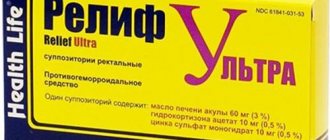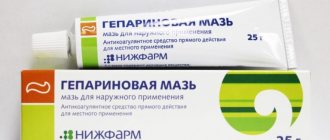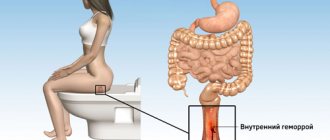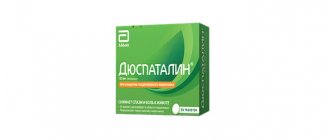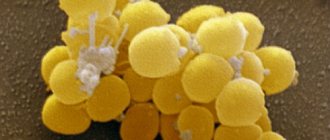Types of phages in the treatment of cystitis
Usually, for cystitis, a coliproteus bacteriophage is prescribed, which can be used internally, in the form of irrigations, lotions and applications.
The dosage of the drug should be calculated exclusively by a doctor. The duration of the treatment period is from 7 to 10 days and this time is usually enough to cope with the inflammatory process. As for contraindications to this remedy, there are none. The exception is individual intolerance to individual components. Reviews from patients about treatment with coliproteus bacteriophage for cystitis provide a complete picture that the drug is truly effective and harmless for the human body of any age, of course, provided the dosage is correctly selected.
There are a number of varieties of bacteriophages, in particular:
- intestifag, which is prescribed to infants from birth;
- bacteriophage Coli - is an effective treatment for cystitis caused by E. coli;
- the streptococcal species is also effective in treating the disease in adults and children;
- bacteriophage intesti for cystitis is used as a single drug and as part of complex therapy;
- pyobacteriophage is a complete analogue of the above drugs, is effective against many bacteria and can be prescribed to young children.
The following drugs can be prescribed as an independent therapeutic agent, as well as in complex therapy.
- Intestifag - the drug can be prescribed to children from birth. However, it is worth remembering that infants may experience skin reactions and excessive regurgitation in the first couple of days after starting treatment. To preserve the solution, it is necessary to draw it with a sterile needle.
- Bacteriophage Coli is effective against cystitis caused by Escherichia coli. The product is also well tolerated. The dosage and regimen of medication are determined by the attending physician.
- Streptococcal bacteriophage is another analogue that may be effective for the treatment of cystitis in adults and children. The dosage regimen and dosage are prescribed in the instructions, but can sometimes be adjusted by a specialist.
- Bacteriophage intesti for cystitis is a highly effective remedy that is used both as a single drug and as part of complex therapy. Before starting treatment, you must consult your doctor and take a bacterial culture test.
- Pyobacteriophage is an almost complete analogue of the agents presented above, effective against Staphylococcus, Streptococcus, Proteus, Pseudomonas aeruginosa, Klebsiella pneumoniae, Escherichia coli. The drug is safe and can be prescribed from an early age.
In medicine, phage-based drugs are divided into groups. The latter are named after the bacteria against which they act.
The following types of phages and drugs based on them are used to treat cystitis:
- Streptococcal;
- Staphylococcal;
- Proteaceae;
- Phage coli;
- Pyobacteriophage is polyvalent;
- Bacteriophage coliproteus;
The first four drugs contain phages of bacteria of the same species and act respectively only against strepto-, staphylococci, Proteus and Escherichia coli (Escherichia coli). Three other medicinal substances have a complex effect. They act on several bacteria at once, including antibiotic-resistant ones.
The most commonly used combined bacteriophages for cystitis in women are polyvalent ones, known under the trade name Sextaphage. The drug acts against Escherichia coli, Proteus, Klebsiella, staphylococci and streptococci.
Bacteriophage coliproteus contains viruses active against Escherichia coli and Proteus.
Symptoms of cystitis
Before starting to take bacteriophages for cystitis, it is certainly worth reading reviews and getting comprehensive advice from a specialist; in particular, the drug should be prescribed exclusively by a doctor, based on the tests obtained during the examination. The symptomatic manifestations of the disease are quite pronounced, and from the first days one can suspect this disease. The most basic signs of cystitis include:
- frequent urge to urinate;
- a small amount of urine released during urination;
- urine becomes cloudy;
- the patient feels pain in the abdomen and pubic area;
- Often the urine acquires an unpleasant odor and blood appears.
Naturally, for a disease to develop, there needs to be a reason and most often it is:
- E. coli, which causes cystitis in most cases;
- various chemicals found in personal care products;
- the disease may develop against the background of another disease, as a consequence or complication;
- while taking medications, and so on.
The effectiveness of bacteriophages for cystitis is shown by practice and the positive dynamics that are observed when patients are treated with this drug. It is worth taking a closer look at what this drug is and what the instructions for its use are.
Features of treatment
Cystitis is an inflammatory process in the bladder, which is accompanied by pronounced symptoms. Absolutely anyone of any age, including adults, elderly and children, can get the disease. Most often, specialists prescribe antibiotics, but, as is known, old people and children do not tolerate them well, so an excellent alternative has appeared - treating cystitis with bacteriophages.
Bacteriophages are a natural replacement for antibiotics. Medicines created on their basis provide the opportunity to successfully treat many infectious diseases. If we talk about what bacteriophages are, then these are viruses that are able to fight a certain type of bacteria.
Reviews about bacteriophages in the treatment of cystitis are positive, since they have undeniable advantages, which include:
- there is practically no likelihood of allergies occurring during treatment, which cannot be said about antibiotics;
- no adverse reactions;
- possibility of use by women in an interesting position and during lactation, as well as by infants;
- the body does not become accustomed to the drugs;
- bacteria do not develop resistance to them;
- a positive effect after taking the drug is observed after just a couple of hours, since bacteriophages very quickly penetrate into the site of inflammation.
The use of antibiotics always carries a risk of allergies, immunosuppression, dysbacteriosis and the development of resistance of microorganisms to the active components of drugs. Against this background, treatment of cystitis with bacteriophages has its advantages:
- have a selective effect - they eliminate only pathogenic pathogens, including those that are capable of forming protective biofilms;
- safe for normal microflora of the body;
- do not affect the functioning of the liver and kidneys;
- enhance the effect of antibiotics when used together;
- can replace antibiotics when bacteria are resistant to them and in the treatment of chronic infections;
- irreplaceable in the presence of contraindications to taking antibiotics;
- extremely rarely cause allergic reactions;
- Use is permitted during pregnancy, breastfeeding, childhood and old age.
- compatible with all medications.
Medicines have no contraindications, except for individual intolerance. There were also no side effects recorded during treatment.
User reviews are mostly positive. Treatment with bacteriophages is called expensive, but effective.
A prerequisite for effective therapy is that before choosing which bacteriophage to use to treat cystitis, it is necessary to determine the causative agent of the infection and its sensitivity to the drug.
Bacteriophages are available in various dosage forms. For the treatment of cystitis, medications are mainly used in liquid form for oral and local administration (through a catheter).
In practical use, it has been proven that the bacteriophage for cystitis, taken orally, is more effective than the drug administered through drainage.
For all types of phages used in the treatment of bladder inflammation, the average duration of treatment is 7-10 days. The drug is taken orally three times a day, 30 ml half an hour before meals. However, if the bladder is drained, the solution is administered through a catheter up to 2 times a day, 20-50 ml. If necessary, after a 7-10 day interval the course is repeated. Be sure to shake the solution before use.
The bacteriophage for cystitis begins to show effectiveness already 2-3 hours after administration. After an hour it penetrates into the blood, after 2 into the urine.
When opening the bottle, maintain sterility and store the opened container exclusively in a refrigerator. Preparations in liquid form are available in bottles of 20 and 100 ml. Bottles with a smaller volume are sold in packs of 4 and 10 pieces. If a volume of 100 ml is used, the solution should be taken with a sterile syringe.
The drug contains a nutrient medium and may be attractive to foreign bacteria, the penetration of which causes turbidity of the solution. Therefore, if sediment is detected in the liquid, it is strictly prohibited to take it.
How to give the drug to a child
The dosage of the drug depends on its concentration and the age of the small patient. We will talk about staphylococcal and intestinal bacteriophages, since they are prescribed to children in most cases.
Staphylococcal bacteriophage is usually prescribed to a child in the form of nasal drops, orally, or as enemas.
- Children under 6 months are prescribed 10 ml as an enema, 5 ml of bacteriophage orally (in the mouth) and 2.5 ml in the nose. Before taking staphylococcal bacteriophage, an infant must undergo an enema with the drug to check for possible side effects such as the development of spontaneous regurgitation.
- Children aged 6–12 months are prescribed 20 ml rectally and 10 ml orally.
- Children from one to three years of age are prescribed 30 ml of the drug rectally, 15 ml of the drug orally. It is important to remember that before taking staphylococcal bacteriophage, the child must administer the first dose of the drug in the form of an enema.
- Children 3–8 years old are given an enema with 40–50 ml of bacteriophage, and 20 ml are given by mouth.
- Children over 8 years of age are recommended to take 30 ml orally and 50 ml of the drug as an enema.
Before giving staphylococcal bacteriophage to children to drink, in any case, it is necessary to consult a doctor and find out the causative agent.
For acute intestinal infections and sensitive bacterial infections, intesti-bacteriophage is used. How to give this drug to a child is described in detail below:
- Newborns and infants up to 6 months are given 5 ml of bacteriophage orally, and 10 ml by rectal administration.
- The dose of the drug at the age of 6–12 months is 10–15 ml orally and 20 ml rectally administered as an enema.
- The average single dose of the drug for children from one to three years of age is 15–20 ml orally and 20–30 ml as an enema.
- The dosage for a single administration for children 3–8 years old is 20–30 ml orally and 30–40 ml rectally.
- For children over 8 years of age, the dose of the drug is 30–40 ml of bacteriophage orally and 50–60 ml for rectal administration.
Contraindications
In pediatric practice, there are practically no contraindications for the use of drugs. The exception is the occurrence of pathological reactions after an enema during the use of bacteriophages for infants.
What to remember during treatment
- The course of treatment with bacteriophages is 7–10 days.
- Before giving the bacteriophage to an infant in the form of drops or an oral solution, it is necessary to administer the first dose of the drug as an enema and carefully monitor the reaction. If regurgitation, stool problems or other digestive disorders occur, you should contact your pediatrician for a second consultation.
- The drug does not cause side effects, but before using it you need to get a doctor's advice.
Author: Sukhorukova Anastasia Andreevna, pediatrician
How do bacteriophages work?
We recommend reading: Fun and educational games for the sandbox. We play at home and outdoors
Author
Anastasia Sukhorukova
Pediatrician
Has a higher medical education. Specializations: pediatrics, obstetrics and gynecology, psychiatry, general therapeutic issues and orthopedics. All articles by the author
I like!
Disadvantages of phage therapy for cystitis
Treatment of cystitis using bacteriophages has a number of advantages. These include:
- no side effects and minimal risk of allergic reactions, which is typical for most antibiotics;
- no negative impact on the immune system;
- Possibility of use for the treatment of pregnant and lactating women, as well as children from birth;
- lack of addiction to drugs. Also, resistance is not developed in the bacteria themselves;
- rapid penetration to the source of inflammation. After taking the medicine, significant relief occurs within a few hours.
The dosage of drugs based on bacteriophages in the treatment of cystitis is determined exclusively by the attending physician. The dose depends on the age of the patient, the complexity of the disease and the general condition of the body. The bacteriophage is both taken orally and microenemas and lotions are made based on it.
Bacteriophages or phages are viruses that parasitize bacteria. The size of viruses is very small. They penetrate the cytoplasm of bacterial cells and begin to multiply, using cell material for this. Thus, they destroy the cell, dissolve it and move on to a new one. Phages will remain in the bladder as long as pathogenic bacteria are present there. When the infectious agents are destroyed, the viruses leave the body naturally.
The peculiarity of phages is that they act selectively on pathogenic bacteria and do not suppress normal microflora.
Phages are used in the treatment of mainly purulent-inflammatory diseases. Based on them, drugs are made whose viruses act on specific strains of bacteria. Medicines also destroy pathogens and stimulate local immunity, which is especially important in the presence of chronic infection.
Phage therapy is used as monotherapy and shows good results in conjunction with antibacterial treatment. Phage-based drugs are indicated as prophylactic agents for people suffering from recurrent infections.
This group of medications is completely harmless, has no contraindications and can be used in childhood.
The most important advantage of bacteriophages also creates their disadvantage. This is specificity. The drug only works against a specific bacterium. The problem is that bacteria are very variable, due to their ability to reproduce quickly. From one type of bacteria in a new environment, their varieties (strains) can appear.
The penetration of bacteriophages when ingested orally into internal organs and the bloodstream has still been little studied and this process may differ from person to person. Therefore, the effectiveness varies from case to case. In connection with the above, at this stage, bacteriophages do not yet remain an alternative method of treating cystitis, but rather an additional one.
The world's first universal bacteriophage in capsules has been developed to combat infections
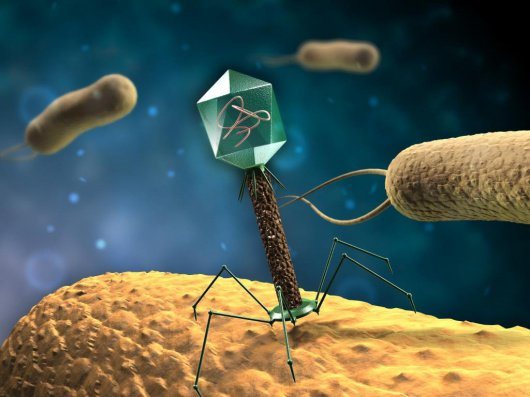
16.04.2018
The Microgen research and production association of the National Immunobiological Company (part of the Rostec State Corporation) has developed a universal medicinal product that allows one capsule to replace the use of a complex of traditional antimicrobial agents for infectious diseases. The drug affects only bacterial cells, without affecting the microflora necessary for the body.
The drug is an oral capsule containing a specialized complex of bacteriophages in dry form that resists diseases caused by several pathogens at the same time. This eliminates the need to take a complex of medications for the treatment and prevention of each disease separately.
The action of the drug, unlike traditional antimicrobial agents, including antibiotics, is based on the targeted destruction of exclusively harmful pathogen cells. Bacteriophages do not affect the microflora “beneficial” for the body and do not have side effects, which eliminates the possibility of dysbacteriosis and complications in the functioning of vital organs: liver, kidneys, intestines. After the destruction of pathogenic bacteria, the drug is completely eliminated from the body naturally.
“There is no similar development anywhere in the world - one capsule includes an antimicrobial complex of bacteriophages for the prevention and control of a number of common bacteria. The drug has already been created and will go on the market after passing the necessary studies and state registration. At the moment, preclinical and first phase clinical trials have been successfully completed, showing its safety,” said Kirill Gaidash, General Director of NPO Microgen.
Rostec's development will allow for the treatment and prevention of diseases caused by bacteria of the genus Staphylococcus (lat. Staphylococcus), Streptococcus (Streptococcus), Proteus (Proteus - P. vulgaris, P. mirabilis), Klebsiella pneumoniae, as well as Pseudomonas aeruginosa. and Escherichia coli.
These bacteria are the cause of a number of ENT diseases (sore throat, pharyngitis, laryngitis, tracheitis, bronchitis, pneumonia, pleurisy), surgical and urogenital infections (abscess, hidradenitis, paraproctitis, mastitis, osteomyelitis, cystitis, pyelonephritis, endometritis and others), various types of generalized septic and purulent-inflammatory diseases of newborns.
Back to list
Drugs
One of the most popular drugs in this group is Bacteriophage Coli, which is a filtrate of a pathogenic strain of Escherichia Coli (Escherichia coli). It has a specific antibacterial effect and is commercially available in the form of a clear yellow solution used for internal and external use.
Bacteriophage Coli is used to treat purulent-inflammatory ENT diseases, bronchitis, endometritis and mastitis. There are other phage-based drugs that are actively used in the treatment of various ailments:
- Sextaphage (polyvalent pyobacteriophage). Intended primarily for external use, treatment of fresh infections and wounds.
- Intestifag (intesti-bacteriophage), used rectally and orally. The drug is taken for intestinal dysbiosis, enterocolitis, typhoid fever and dysentery.
- Stepophage (or streptococcal bacteriophage) is used to get rid of chronic sinusitis and tonsillitis.
- Pseudomonas aeruginosis (pseudomonas bacteriophage) is effective for the treatment of internal organs affected by Pseudomonas aeruginosa.
Scope of application of bacteriophages
Bacteriophages are a natural replacement for antibiotics. Drugs based on them make it possible to cope with a wide range of infectious diseases. Bacteriophages themselves are viruses that feed on one specific type of bacteria and do not have any effect on the body's systems. In addition, bacteriophages are perfectly combined with other types of treatment, including taking antibiotics.
Such drugs are prescribed to patients in the following cases:
- purulent processes affecting the lungs and respiratory organs;
- urological diseases, including cystitis and urethritis, as well as kidney diseases, such as pyelonephritis, which often acts as a complication after inflammation of the bladder;
- gynecological diseases;
- eye diseases;
- infectious and purulent processes in the oral cavity;
- intestinal diseases;
- urinary tract infections.
Before you start taking medications in this group, it is necessary to identify the causative agent. For example, a staphylococcal bacteriophage will only be effective against infections caused by this pathogen.
- for generalized septic diseases;
- intestinal dysbiosis and enteral infections (cholecystitis, gastroenterocolitis);
- urogenital infections (pyelonephritis, cystitis, urethritis);
- diseases of the nose, throat and ear (laryngitis, pharyngitis, sinus inflammation);
- in the presence of surgical infections (bursitis, boils, abscesses, suppuration of wounds).
Bacteriophages can be prescribed for purulent-inflammatory diseases of newborns such as sepsis, gastroenterocolitis, conjunctivitis, pyoderma, and various ailments caused by E. coli. Antibacterial drugs based on phages are often used for prophylactic purposes for the treatment of fresh infected and postoperative wounds and for the treatment of diseases associated with Escherichia Coli.
For oral administration, bacteriophage in tablets is used. The drug can be used rectally (using an enema), in the form of irrigations, applications, as well as injections into the sinuses, uterus, vagina and wound cavities. Liquid bacteriophage is used mainly as external lotions. Today, the pharmaceutical market offers drugs based on viral bacteria in the form factor of gels, suppositories, aerosols and solutions. To increase the activity of bacteriophages, it is recommended to combine different methods of application:
- For the treatment of localized lesions of a purulent-inflammatory nature, the drug is administered both externally and internally for one to three weeks.
- In the form of tamponing, lotions and irrigation, phage-based preparations are used in volumes from 10 to 200 ml, depending on the area of the affected area.
- The drug is administered into the articular or pleural cavity through capillary drainage in a volume of no more than 100 ml. The procedure is usually carried out over several days.
- Intestinal dysbiosis and enteral infections require taking the drug internally three times a day, an hour before eating, for a period of two to three weeks.
- Inflammatory and purulent diseases are treated by instilling the drug into the sinuses, throat and ears. Dosages should not exceed 3–10 ml.
For urethritis, pyelonephritis, cystitis and similar diseases, bacteriophage in tablets is most often prescribed in combination with administration of the drug through a nephrostomy or cystostomy. 6–8 ml is injected into the renal pelvis, 25–50 ml into the bladder cavity. For the treatment of enterocolitis, sepsis and other inflammatory diseases in children under six months of age, a bacteriophage is used, which is administered as an enema using a catheter or gas tube.
Bacteriophage from enterococcus

Reducing the number of enterococci in the feces of an infant is achieved through the use of intestinal bacteriophages, since antibiotic treatment can be harmful to children whose immune systems are at the stage of formation.
The bacteriophage is given to the child three times a day before meals. When it is not possible to give a drink to a child, an enema is practiced.
Treatment lasts for 6-7 days. In cases where tests show improvement, but full recovery has not yet occurred, you can extend the course by 2-3 days.
It should be noted that treatment with bacteriophages is inferior to treatment of enterococcal infection with antibiotics, but for infants the most gentle method is chosen.
The main reason for the increase in enterococci in the feces of children is a decrease in the body's immune defense, so the best prevention is proper nutrition and regular walks in the fresh air. You should definitely include probiotics in your diet.



